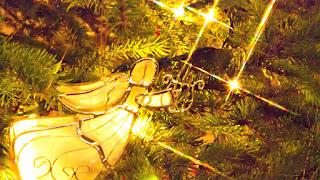Not in God’s Name 6 Jacob and Esau
At some point in our lives, we all wish we could be someone else. Whom do you envy?
Genesis 25-33 tells a typical story of
sibling rivalry: favouritism, envy,
deception, usurpation, anger, violence, the weak one winning and the seemingly
stronger losing. If we read carefully,
that is not the story at all. This story
of sibling rivalry turns out quite differently.
Jacob wanted what his brother had even from the womb. He came out grasping the heel of his elder
brother. He tricked his brother out of
his birthright and his blessing. Isaac,
thinking Jacob was Esau, gave Jacob the blessing belonging to the elder son, a
blessing of wealth and power. (Genesis27:28-29) A few verses later realizing
that he had been deceived, Isaac also blessed Esau. We want so much to make this a typical story
of sibling rivalry that our translators choose to make the blessing sound more
like a curse. (Genesis 27:39-40) The
footnotes tell us that ‘away from’ could also be translated ‘of’. If we choose the second translation the
blessing is a blessing of wealth, ‘Your home shall be of the fatness of the
earth and of the dew of heaven’ and power ‘you shall break his yoke from your
neck.’ We could translate these verses
to mean that there is plenty of wealth for both brothers (as the rest of the
story indicates) and that Jacob’s power is not unlimited. Knowing that Esau is quite understandably
enraged, Jacob flees. Before he goes,
Isaac gives him another blessing, this one intended for him, a blessing of
children and land, the blessing of the covenant. (Genesis 28:1-4)
No one, especially Jacob, expected Esau to welcome him home 14 or more years later. His wrestling in the night just before he encountered Esau (Genesis 32:22-32) brought Jacob to a new understanding of himself. He didn’t need to ‘lord it over Esau’. Jacob bowed down to Esau not the other way around! Indeed he didn’t even need the blessing he had stolen from him. Again our translation gives us the meaning we expect, not quite the meaning the story intended. Genesis 33 describes the meeting. Verse 11 is translated, “accept my gift because God has dealt graciously with me.” The Hebrew says: “accept my blessing (birkhati)” (The one that I stole from you, wealth?) Somewhere in his ‘dark night of the soul’, Jacob learned to be who he was intended to be: the inheritor of Abraham’s promise, Israel, the one who struggles with God. And he learned to accept that Esau was also loved and accepted and blessed by Isaac and by God with his own wealth and power. Genesis 35:29 tells us that the two brothers together buried their father, Isaac. Again, we see that rivalry doesn’t have to end with a winner and a loser.
I acknowledge the ideas of Jonathan Sacks in his book
“Not in God’s Name”




Comments
Post a Comment
Thanks for your comment. I will reply soon.